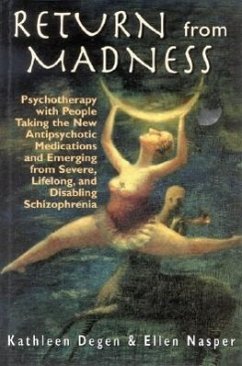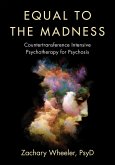The advent of novel antipsychotic medications has created a need for psychotherapy tailored to this population. Sudden reduction in pervasive, persistent delusions and hallucinations, and recovery of motivation, energy, volition, and the ability to experience pleasure from something other than cigarettes is a mixed blessing. Patients are relieved of terrible suffering but left with new problems. Shedding the lifelong identity of a mental patient, they no longer need case management but require help adjusting to major changes in their thinking and functioning. Kathleen Degen and Ellen Nasper describe group therapy that helps patients identify and cope with unexpected, intense feelings such as sadness or painful memories of childhood trauma, increase their interpersonal skills, and advance their sense of self beyond that of their label as mental patients. The authors show how to build on the phenomenal changes that the new medications provide.
Hinweis: Dieser Artikel kann nur an eine deutsche Lieferadresse ausgeliefert werden.
Hinweis: Dieser Artikel kann nur an eine deutsche Lieferadresse ausgeliefert werden.








